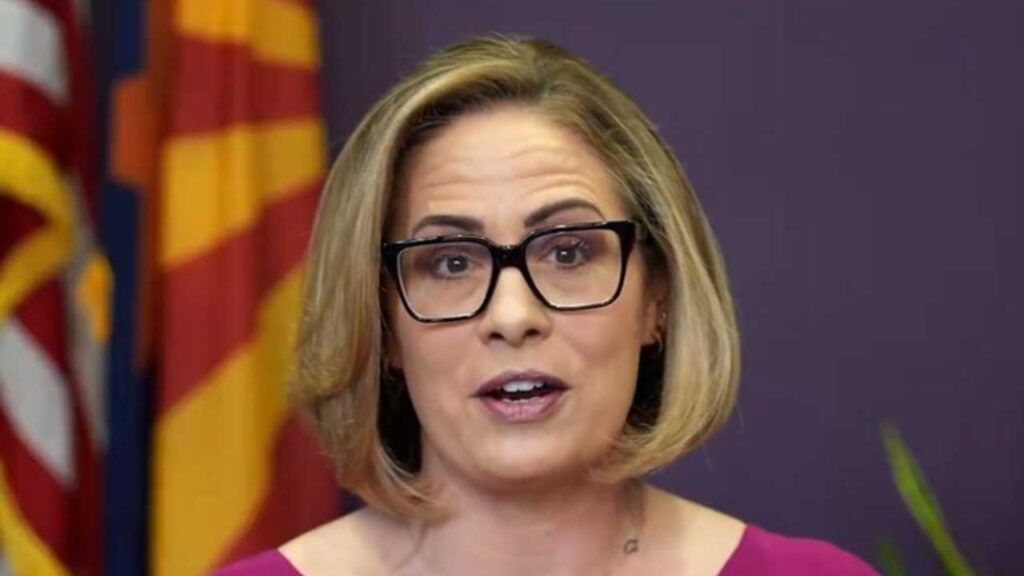Kyrsten Sinema, Arizona Senate race, bipartisan politics, 2024 Senate election, Ruben Gallego, Kari Lake, political independents, Senate control, electoral battleground
“Explore the implications of Senator Kyrsten Sinema’s departure from the Senate on the 2024 election. Understand how this move alters the battle for control in a key battleground state and reflects on bipartisan politics in the U.S.”

Senator Kyrsten Sinema Retirement
Senator Kyrsten Sinema, an independent from Arizona, recently announced she would not seek reelection, marking a significant shift in the political landscape. Her decision underscores the changing dynamics in the Senate and highlights the challenges and opportunities facing both parties in the upcoming election. This development has far-reaching implications for the battle for control of the Senate and the broader political discourse in the United States.
Sinema’s Influence and the Impact of Her Departure
Senator Sinema has been a central figure in Congress, known for her willingness to broker compromises between Democrats and Republicans. Her approach, while controversial among some factions, has underscored her belief in bipartisan cooperation. However, Sinema’s announcement that she believes her approach is not what America currently desires highlights a perceived disconnect with the prevailing political climate.
The implications of Sinema’s departure are profound, particularly in Arizona, a battleground state with a history of tight electoral margins. With Sinema out of the race, the door opens wider for both Democratic and Republican candidates, intensifying the competition. The race is now a focal point for national attention, with potential candidates such as Democratic Rep. Ruben Gallego and former Republican gubernatorial nominee Kari Lake drawing significant interest.
The Arizona Senate Race: A Key Battleground
Arizona’s Senate race is critical in determining the balance of power in the Senate. The state, which narrowly voted for President Joe Biden in 2020, is emblematic of the nation’s political divisions. The endorsements and strategies of national party leaders following Sinema’s announcement reflect the high stakes involved. Senate Majority Leader Chuck Schumer’s endorsement of Gallego and Sen. Steve Daines’ commentary on the advantage for Lake underscore the competitive nature of this race.
Sinema’s Legacy and Future Prospects
Sinema’s tenure in the Senate has been marked by her efforts to transcend partisan divides, a stance that has garnered both praise and criticism. Her role in significant negotiations, such as the bipartisan border deal, demonstrates her commitment to finding common ground. However, the eventual breakdown of this deal and the challenges faced in passing other legislation reveal the difficulties of maintaining such a stance in today’s polarized environment.
The reaction to Sinema’s decision, from both colleagues and the White House, highlights her unique position in the Senate. Praise from Republican Sen. Thom Tillis and acknowledgment from the White House press secretary Karine Jean-Pierre reflect Sinema’s impact as a negotiator and partner in legislative efforts.
Conclusion
Senator Kyrsten Sinema’s decision not to seek reelection is a pivotal moment in American politics. It not only shakes up the race for the Senate in a key battleground state but also prompts reflection on the nature of political compromise in an increasingly divided nation. Sinema’s departure represents both an end and a beginning, closing the chapter on her unique approach to governance while opening new avenues for her potential successors. As the political landscape continues to evolve, the legacy of Sinema’s tenure and the outcome of the Arizona Senate race will undoubtedly play crucial roles in shaping the future of bipartisan cooperation and the balance of power in Congress.
Other Links-
